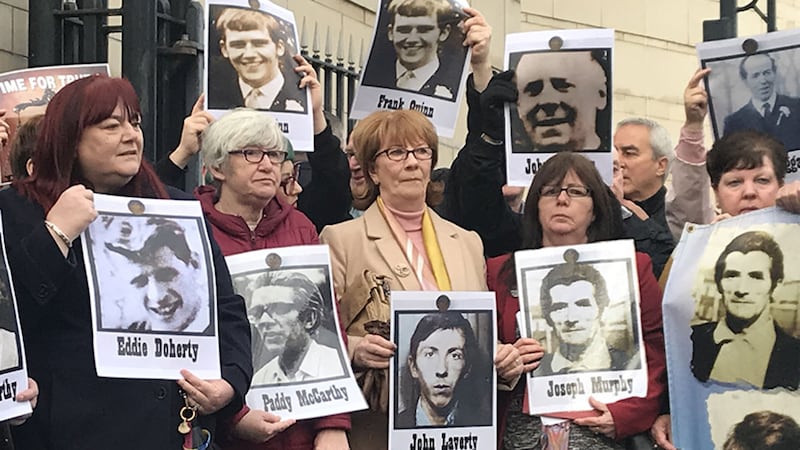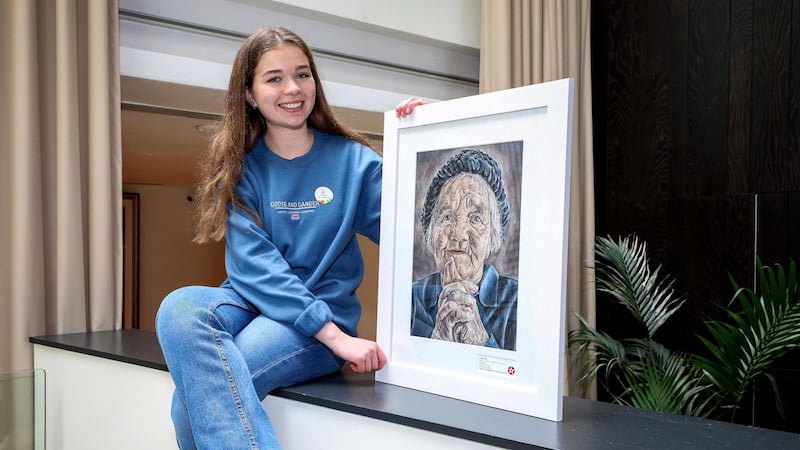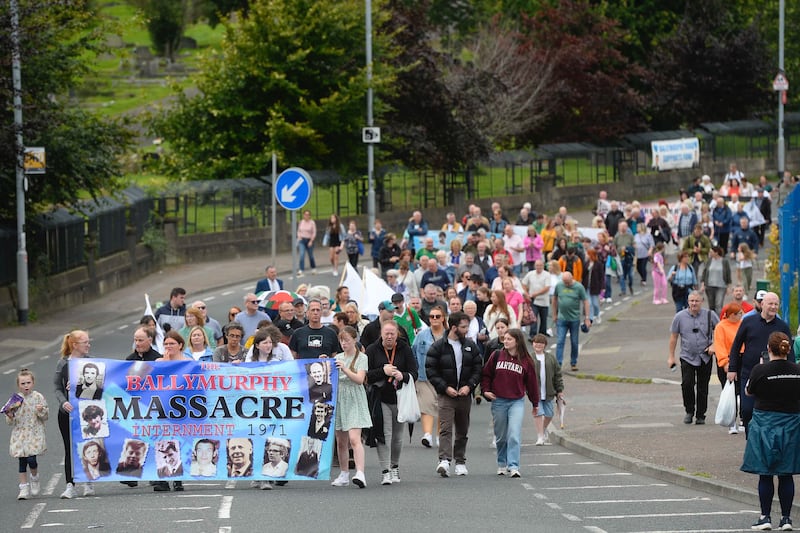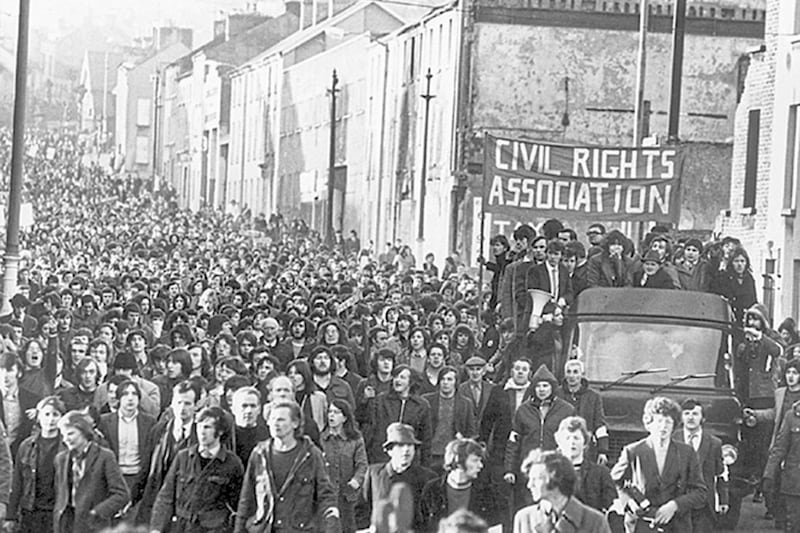Inquests into the deaths of ten people killed in gunfire during three days of shootings in west Belfast have been told difficulties surrounding the case have been exacerbated by the loss of records and statements from military witnesses.
The inquests investigating the 1971 episode, referred to as the Ballymurphy Massacre by bereaved relatives, began in Belfast on Monday.
In 2011, Attorney General John Larkin directed that new inquests be heard after a long campaign by family members who claimed the original coronial probes in the aftermath of the shootings were inadequate.
Sean Doran QC, counsel for the Coroner's Service, detailed the evidence that will be examined throughout the inquests.
He said described the process into these inquests as "difficult and complicated".
Read More:
- Mixed emotions as 'Ballymurphy Massacre' inquest gets under way
- Neighbours star 'Madge Bishop' voices support for Ballymurphy Massacre families at Melbourne rally
- New potential witness to Ballymurphy massacre emerges
- Ballymurphy inquest: 119 former soldiers asked to give statements
- Huge online reaction to Ballymurphy documentary screening
He added the difficulties have been exacerbated by the loss of records including statements from military witnesses which they gave before the original inquest.
A Catholic priest was among the 10 fatally injured in the shootings, involving members of the Parachute Regiment.
Another man died of a heart attack following an alleged violent confrontation with the troops in the west Belfast estate.
The shootings took place as the British Army moved in to republican strongholds to arrest IRA suspects in the wake of the introduction by the Stormont administration of the controversial policy of internment without trial.
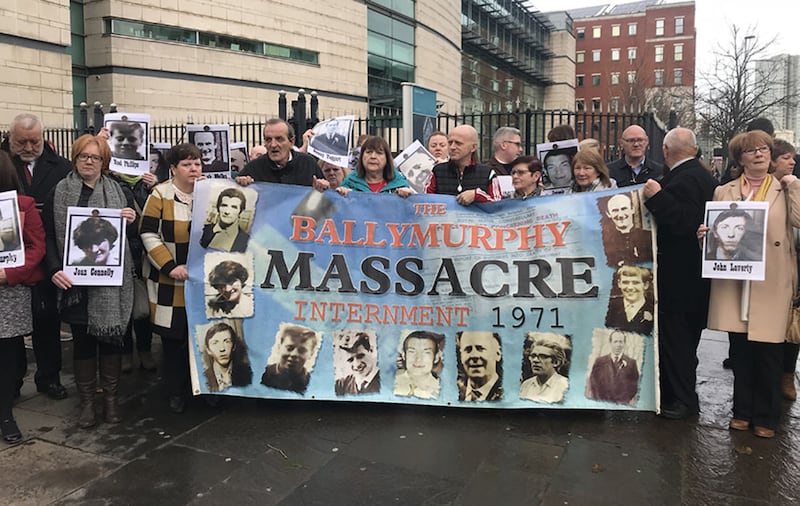
Soldiers have long been held responsible for killing all 10 people in Ballymurphy between August 9 and August 11 1971, but the accepted narrative became clouded earlier this year when former members of the UVF came forward to claim their organisation was also involved.
Mr Doran said the court will examine a period of time in Belfast when there were approximately 12 explosions, 59 shootings, 17 deaths, 25 injuries, 13 rioting incidents, 18 arson attacks and numerous reports of civil disorder.
"When examining the deaths through a forensic lens we ought not to lose sight of the context of when these deaths occurred," he said.
"That is not to say however that the context provide shield or buffer against scrutiny."
The families of the ten victims who were killed in 1971 gathered outside Laganside Court in Belfast ahead of the inquests.
Family members held pictures of the victims and banners calling for justice.
Political representatives from Sinn Féin, the SDLP, People Before Profit and Alliance also attended.
John Teggart, whose father Daniel was one of those killed, said before court: "It's mixed emotions going into court today but the determination of the families to get to the truth has brought us to here."
Solicitor Pádraig Ó Muirigh, who represents some of the families, added: "Today, 47 years after these families lost their loved ones, 46 years after the original inquest, seven years after the direction for a new inquest, we are finally here.
"It's a tribute to the adversity and resilience of these brave families, so I want to commend them through all the difficult days.
"Hopefully this is a new start of a process to find out what happened to their loved ones.
"Over the next few months the court will examine the evidence and we are very confident that their loved ones' innocence will be clear and their names will be cleared, finally."
